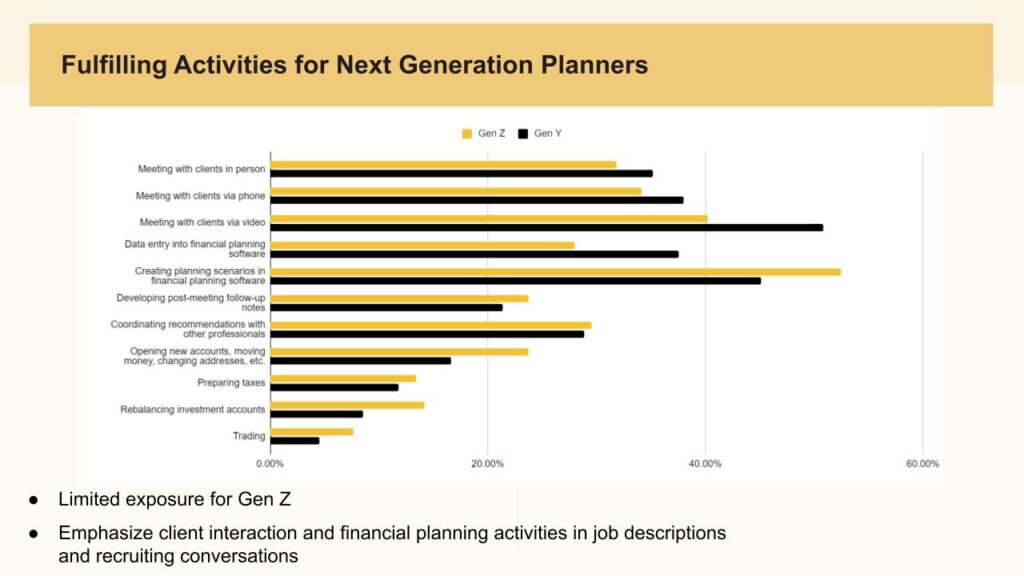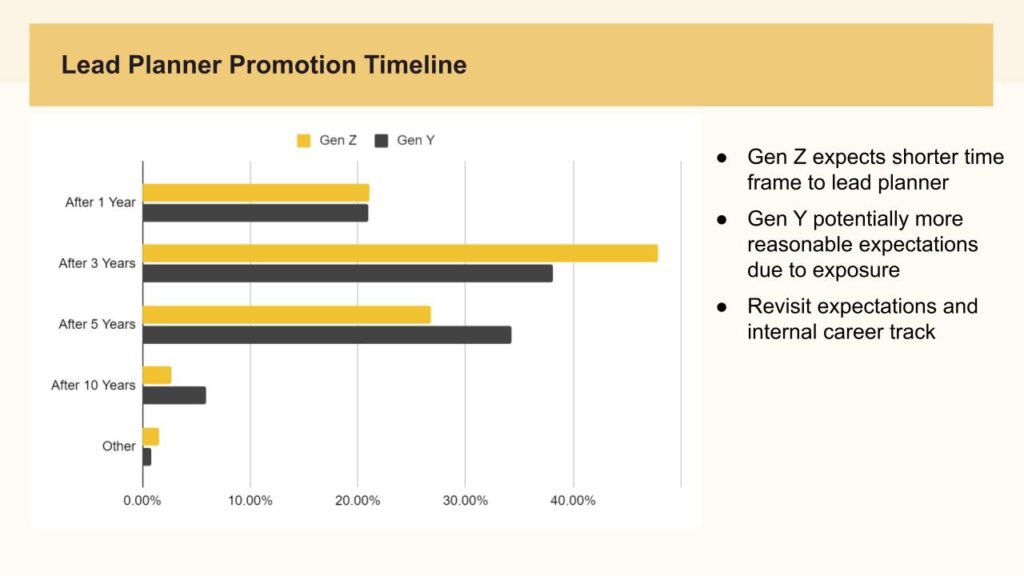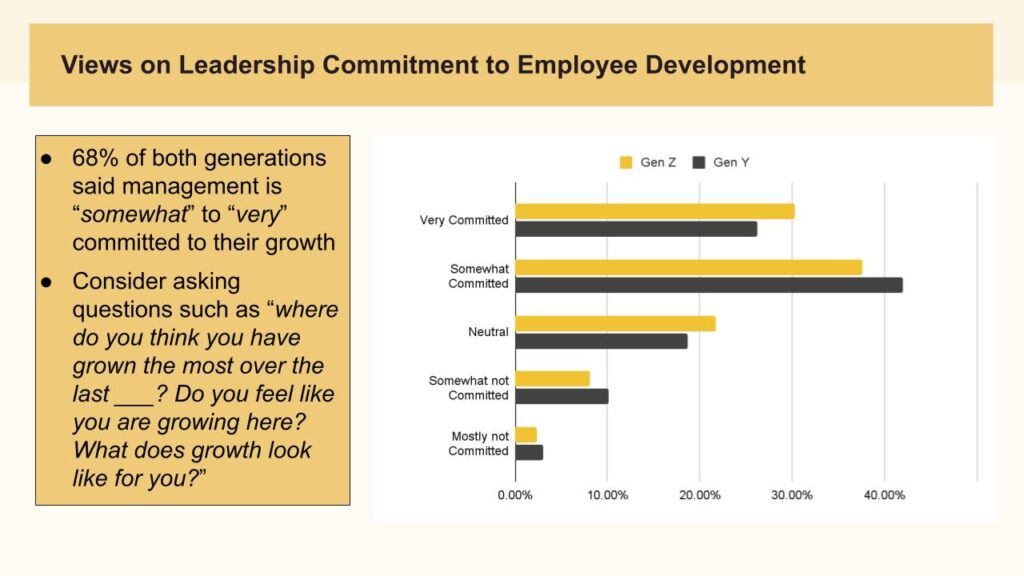Last month, we introduced our research study exploring why new financial planners enter the profession and what career path they seek when starting out. This month, we will look at the activities that they cited as the most fulfilling, what their expectations are for promotion to a lead planner role, and their view of management’s commitment to their career development.
When we asked new planners what were the most fulfilling activities they did each day, Gen Y (Millennials) cited Meeting with clients via video and Gen Z specified Creating planning scenarios in financial planning software. Gen Y is further along in their career and thus has developed more confidence to communicate directly with clients, while Gen Z is still transitioning from a back office role where they may have started, so this matches what we see anecdotally. Even though, as we pointed out last month, many might be lacking the confidence, skills and ability right away, eventually new planners want to focus on creating plans and meeting with clients.
One takeaway is to ensure you have some degree of flexibility with the timeline of when your new hire takes on clients themselves, as some might take a little longer to develop the appropriate confidence to meet with clients and/or develop the planning scenarios in software, since these are both delicate skills and margin for error is low.
 Expectations of Lead Planner Promotion Timeline
Expectations of Lead Planner Promotion Timeline
I remember when I started my career, at 22 years old, and I was in my first client meeting with an experienced advisor, and realized how far I had to go to be able to do what they did! After several years and hundreds of meetings though, just like anything else you practice, it began to feel more natural. Everyone’s time frame is different, and we have seen new hires develop very quickly (within a few years) into a lead planner role, while others may take up to 5+ years to get confident and comfortable.
The chart below shows us that the majority of new planners that are in a client-facing role expect to be promoted to a lead planner after 3 years. Here is an example of a new college grad who worked their way up to a lead planner at age 25.
 One other takeaway is ~20% of Gen X and Gen Y stated they expected to be promoted after only 1 year. This is an unrealistic expectation for most people seeking a salaried employee job, because if they could develop that quickly, they would likely start their own firm and bypass the job search altogether. We suggest revisiting career track timelines with all of your newer planners on a regular basis, to be certain that their expectations are realistic in the first place.
One other takeaway is ~20% of Gen X and Gen Y stated they expected to be promoted after only 1 year. This is an unrealistic expectation for most people seeking a salaried employee job, because if they could develop that quickly, they would likely start their own firm and bypass the job search altogether. We suggest revisiting career track timelines with all of your newer planners on a regular basis, to be certain that their expectations are realistic in the first place.
Views on Leadership and Firm Management
“When I was hired, the firm did a great job of onboarding, training, and mentoring me, and this continued on for about 6 months. After that, it kind of just stopped. I think they thought I was in a good place and was up and running and they could finally stop doing two jobs (mentoring and training me plus their regular job) and if I had a question I would come to them. I felt I stopped growing as fast when the mentoring dropped off. I wish there was some way to keep it going.”
Anonymous Respondent
The below chart highlights that 68% of next-gen planners think their firms are somewhat or very committed to their development… which leaves a third of respondents feeling otherwise.

When people reach out to us for help finding a new position, we always ask why they want to leave their current firm, and what we hear the most is ‘I’m not able to grow/looking for a better growth opportunity.” Growth means something different to everyone, but usually when we explore further the root of the issue is the drop off in mentoring or the opportunity to learn new things.
One way to tackle this is with periodic check-ins to find out whether your newer team members still feel supported, with questions like “Where do you think you have grown the most over the last year?” or “Do you feel like you are still growing here?” and “What does growth look like for you?” These questions can be covered in quarterly or annual reviews, and then revisited during check-ins. Our research showed once per week was the most desired formal check-in frequency.
The key takeaway is simply that most people want to feel they are growing in skills, responsibility, and income and tend to start “looking to see what is out there” when these areas of their career are stagnant.
Stay tuned for next month, when we will be diving into what are the most requested and valued employee benefits, what stands out to job seekers when considering firms to join, and what are the best ways to retain new hires.
Feel free to contact us at blog@newplannerrecruiting.com if you have any questions and/or would like to hear more about how we have alleviated many of the headaches over the last 15 years that plague financial planning firms when hiring.


Leave a Reply